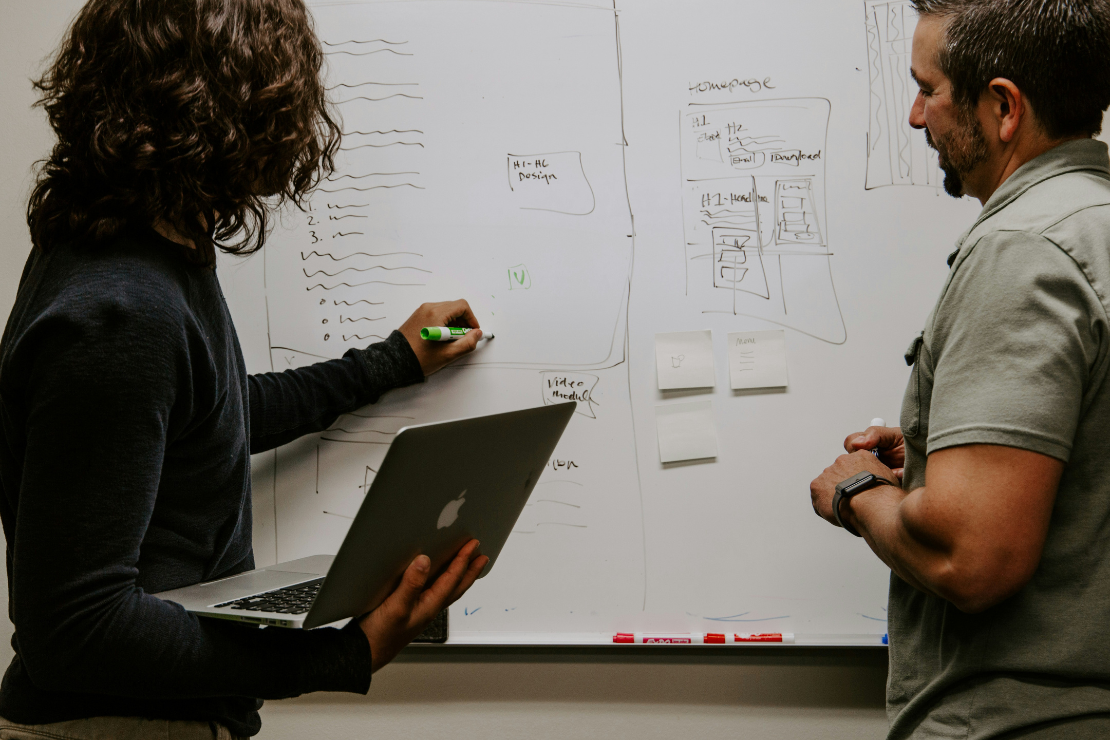“But What Can I Do?” – A Simple Answer to a Big Question
Oct 13, 2025

By Chris Heivly, Managing Director at Build The Fort and Startup Community EIR @ Techstars
If you’ve ever looked around your city’s startup community and asked yourself, “But what can I do?”, you’re not alone. It’s one of the most common — and honest — questions people ask when they first start to care about their ecosystem. It’s my favorite question to answer.
You see energy around you. New founders sharing ideas. Startups popping up. Events being hosted. Maybe there’s a new coworking space or someone just raised a big round. And you think, “This all seems like a machine that’s way bigger than me. What impact could I really have here?”
Let’s be clear: that feeling is real. Startup communities and entrepreneurial ecosystems are complex systems. We look for a playbook or an obvious entry point but we cannot see either. There’s no blueprint, textbook or manual. And there's no centralized command post so we cannot go ask someone what or where to engage. It feels totally chaotic and we surmise that in such a chaotic system there is no way we can have an impact. But that’s also the good news.
You don’t need to impact the whole system. You just need to start with you.
More good news and a notion I want you to walk away with - you can only control you. You don’t need permission. You don’t need a title. And you certainly don’t need a grand strategy or a seven-figure fund to get started. You just need to engage in any one of the small activities going on in your town.
Show up. Be curious. Offer to help. Listen more than you talk. Ask founders what they need. Share your story. Invite someone to coffee. Make one intro a week. These may feel small, but they’re the seeds of engagement necessary for a healthy community. Multiply that by 10 or 25 people and you have a great foundation for the type of community I see that makes an impact. Along the way you also are setting some cultural norms. And norms shape the future.
Your greatest impact isn’t some mythical moment of big bang change. It’s in the quiet, consistent influence you have over your close circle. Yes, you can and do influence your close circle. You do that through your actions and behaviors.
Your coworkers. Your peers. Your coffee group. The few people who trust you and watch what you do. When you support founders and amplify their stories, when you GiveFirst and create space for others to lead, that influence ripples outward.
Research shows that we influence our friends and our friends' friends and even our friends' friends' friends.
And here’s the kicker — people want to be around good people with good norms. It’s magnetic. When you and your circle show up in a way that’s open, helpful, and founder-first, others will match that energy.
So if you’re still asking, “But what can I do?”, here’s your takeaway:
When in doubt, remember — every big movement starts with someone deciding to do something small.
Getting started doesn’t need to be complicated. Here are five simple, effective ideas you can start tomorrow to engage with founders and stakeholders in your community:
1. The Coffee Ask
What to do: Pick one founder — someone you know, follow, or admire — and reach out for a 20-minute coffee chat (in-person or virtual). Keep it low-key and founder-first:
“I’m trying to get more involved in the startup community. I’d love to hear your story and see if there’s any way I can support you.”
Why it works: Founders are often isolated. Just having someone listen and ask what they need can be a big deal. Bonus: you might learn about an event, a product, or a challenge you can help with.
2. Start a "GiveFirst" Thread
What to do: At your local coworking space or even on LinkedIn, post a short message offering help to founders—an intro, feedback on a deck, event promo, or just a friendly ear. Something like:
“Founders: I have a few open slots this week to offer help — happy to make intros, review your pitch deck, or just jam on a challenge. Comment or DM me. #GiveFirst #Startups”
Why it works: Public generosity signals that you're safe and useful to founders. It starts conversations. And even if no one bites immediately, you're laying down trust-building signals.
3. Show Up + Share Out
What to do: Find a local founder-focused event happening this week — a meetup, pitch night, or coworking open house. Go. Talk to 3 people. Afterward, post a quick recap on social media, tagging the event or any founders you met:
“Just left [Event Name] — really impressed by [Founder’s] pitch on [Startup]. Love seeing this kind of energy in our community. Let’s keep building. #StartupCommunity”
Why it works: It boosts visibility for others, adds momentum to your ecosystem, and introduces you to new faces. It’s also a stealthy way to become a connector.
4. Host a Founder Lunch (Just Buy the Pizza)
What to do: Pick a day next week, reserve a small table or space at a local café or coworking spot, and invite 3–5 founders for an informal lunch. Call it “Founder Hangout” or “Startup Circle.” No agenda — just connect.
How to invite:
“I’m grabbing lunch with a few startup folks to swap stories and connect—want to join? I’ll bring the pizza.”
Why it works: Founders rarely get unstructured time with peers. This creates space for community without requiring a stage, a sponsor, or a speaker.
5. Adopt a Founder’s Story
What to do: Find one local founder with a story that deserves to be shared — maybe they launched a product, hit a milestone, or just need visibility. Offer to help them tell that story: write a LinkedIn post, share it in your newsletter, or pitch it to local media.
Why it works: Storytelling is one of the most powerful tools in community building. Helping one founder get noticed inspires others and positions you as someone who lifts others up.
Each of these takes a couple hours or less but can have real ripple effects in your local startup scene. Once done, do it again and again and watch things change. That is an easy-to-start impact.
Learn more about Techstars Startup Community partnerships, a new way for you to build your thriving startup community as a member of the Techstars network.
About the Author

Chris Heivly
Chris is one of the nation’s leading experts on launching startups and has been dubbed the “Startup Whisperer.” He co-founded MapQuest, is an angel investor, ran a corporate venture fund and 2 micro venture funds (directed over $75M), and was most recently SVP Innovation with Techstars. Chris just released his new book, The Startup Community Builder’s Field Guide for founders, investors and economic development leaders to better accelerate their ecosystem.
